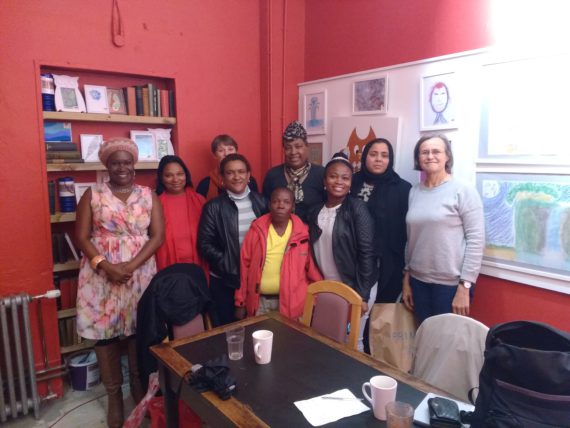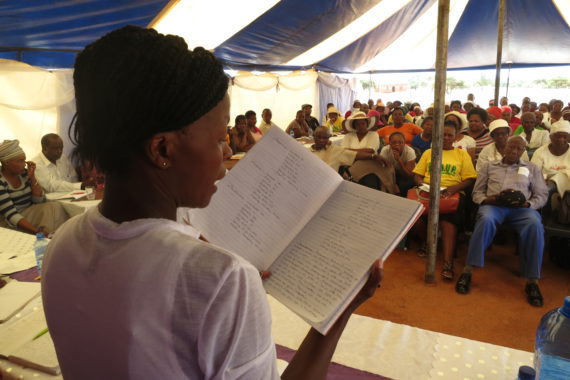How can saving impact poor communities and influence inclusive development practice? On a recent visit to Manchester’s Global Development Institute FEDUP’s Patrick Matsemela responds to these questions by telling his story:
“When I say I was a robber, it was because I had nothing to do. When the Federation (FEDUP) started, I collected scrap metal from aluminium trollies. One day I found a group of mamas sitting together and someone told me that those mamas save R1.50 on a daily basis and deposit savings into a joint account. I did not have R50 so I knew I couldn’t open my own bank account. But I thought, “If I put money in with these mamas, they will use the money.” I thought that these people were scamming.
At the time I was a heavy smoker. One cigarette cost R1. I had to save to smoke. Or steal to fuel my addiction. I asked people, “What happens with these savings? Do I get it back or is it just a show?”
They explained that you can request to withdraw the amount you saved by going to the savings collectors and treasurers of your savings group. This was better than the bank! Through joining a savings group I learnt to put money together and come together with other people. The moment you share your problem with friends you create a society. For example, if I did not eat, I could sit together with other savers and put money and food together. Over time I became rehabilitated from being a heavy smoker and drinker.
The leaders of these savings groups are women, about 95%. Men cannot save, that’s true. But women savers are very strict. They don’t play; they are professionals. For example, you can only withdraw what you saved. We are illiterate but still people were talking about bank charges.
My trust in the savings group increased because of my savings book and the record book of the savings collector. Every time I gave my savings to the collector, both of us needed to sign my savings book and the collector’s record book to prove that the money was collected. As a savings group we chose people living inside our community to be the collector, treasurer and secretary of our group. Saving is not only about collecting money but also asking people about their feelings. For example, the collector asks you how you are, why you didn’t attend the savings meeting last night.
But there is no way to get everything correct. Mismanagement is a challenge. In some groups, the collector takes R10 saying, ‘Let me just use it now, tomorrow I will pay it back’. But then when the audit comes and other savings group treasurers come to your group to do the books and audit they ask why this was not recorded. The treasurer then feels the heat. Stealing is a bad word. Do not say steal, otherwise you won’t build a person. Rather whisper to the person and ask, “How will you repay?” First approach the individual who misused the savings, then the group. Sometimes we can call the police or influence some people in the community to take the person’s TV. Or we come as a group and hire a buggy and take the fridge and TV. We are not going to sell it but the person knows they can find us in the savings meeting.”
Since the early 1990s, FEDUP has used saving as a key tool to build a strong urban and rural poor social movement. Currently FEDUP counts about 43 900 members in eight provinces in South Africa. Through collective saving and critical mass, FEDUP played a key role in advocating for the People’s Housing Process (PHP). The PHP is a milestone policy on inclusive (community-led) human settlements development. Patrick Matsemela joined the Federation in 1998. He is currently the national coordinator for FEDUP saving networks in the North West province. He serves on the board of Slum Dwellers International (SDI), representing urban poor federations affiliated to SDI.



